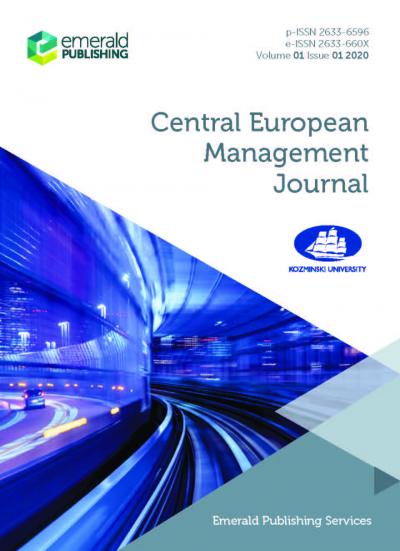Cross-country Differences in Reporting Practices – the Case of Provisions for Liabilities
Katarzyna Klimczak
Warsaw School of Economics
2017 25 (3) Central European Management Journal
DOI 10.7206/jmba.ce.2450-7814.201








